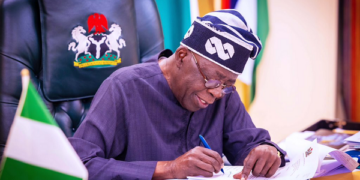- He said that the campaign was not just about providing a new product, but about creating a new culture of clean cooking
Mustapha Abdullahi, Director-General of the Energy Commission of Nigeria (ECN), has revealed the agency’s ambitious plan to achieve net-zero carbon emissions in the country by 2050.
Speaking at the inaugural sensitization campaign promoting the use of improved wood stoves in rural areas held at Kurudu Village, Karu Area Council, Federal Capital Territory (FCT), Abdullahi emphasized the importance of reducing carbon emissions.
While acknowledging that the nation hasn’t attained a complete 100% reduction in carbon emissions, Abdullahi highlighted a significant decrease to one percent. He further clarified that the enhanced wood stoves are designed for more efficient and cleaner burning of fuel wood, resulting in reduced fuel consumption and harmful emissions.
He said that the campaign was not just about providing a new product, but about creating a new culture of clean cooking.
He said that they can also save time, money and labour for the users as well as improve their health and well-being.
He said the commission would provide a feedback mechanism for all to give a review of their experiences while using the cook stoves.
He said, “We are here to demonstrate how improved cook stoves work, and how they can benefit you and your families.
”We will also distribute some improved cook stoves to selected households.
“We will provide training and support on how to use and maintain them.
”We hope that you will try them out, and share your feedback and experiences with us and your neighbors.
“We are going to design a feedback mechanism where we want to hear from them, to give us a review of what they have saved.”
Meanwhile, he said that cooking with a traditional biomass stove was a major source of household air pollution, which causes millions of premature deaths every year, especially among women and children.
“It contributes to deforestation, climate change, and energy poverty. These are serious challenges that we must address as a nation.
“We have not cut carbon emissions 100 per cent but we have reduced it to 1 per cent and we intend to take it to net 0 by 2050, that is our plan.
“We must work towards it. For us to do that, we must be able to attract 4 billion dollars yearly up to 2050 that we have pledged to cut the emissions to net-zero.
“We have also engaged with the local leaders, women groups, youth groups, and other stakeholders to ensure that this campaign is inclusive, participatory, and sustainable,” he said.










Discussion about this post